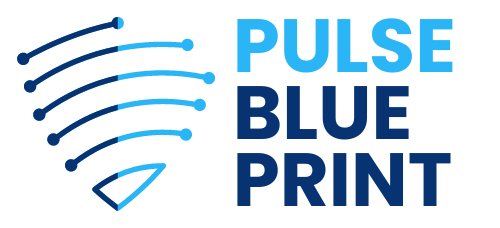Interviews can be nerve-wracking, but preparation is your key to success.
Knowing what to expect gives you the upper hand, and there are seven interview questions that nearly every candidate faces.
These questions are designed to assess your experience, character, and how well you fit the role.
If you’re ready to stand out from the competition, understanding these questions, and mastering your responses, is non-negotiable.
Let’s break down the essential interview questions and how to tackle them with confidence.
1. Tell Me About Yourself

When they ask you to describe yourself, seize the opportunity to deliver a powerful and concise professional summary, also known as your “elevator pitch.”
- Highlight relevant experience: Start by discussing your current or most recent role.
- Showcase accomplishments and skills: Focus on achievements that directly relate to the position you’re applying for.
- Emphasize career progression: Briefly mention your career journey, emphasizing how each role has prepared you for this new opportunity.
For example, if you’re applying for a project management role, you could mention:
- Leadership experience: Your previous work leading cross-functional teams.
- Time management: How you managed tight deadlines and delivered successful outcomes.
- Problem-solving: Highlight specific projects where you solved complex challenges.
Avoid personal details that don’t contribute to your professional qualifications. Keep the focus on your career, aligning your background with the job you’re aiming for.
Make sure your enthusiasm for contributing to the company shines through.
The goal is to leave a lasting impression on the hiring manager and to stand out from other candidates by clearly linking your experience to the role. This is your moment to make a strong, confident first impression!
2. What Are Your Strengths and Weaknesses?

The “What are your strengths and weaknesses?” question is your chance to prove you’re self-aware, honest, and committed to improvement.
- Highlight your strengths: Tailor them directly to the role you’re applying for. Think about the qualities that are in high demand and give concrete examples. For instance, mention how you thrive in fast-paced environments, solve complex problems with ease, or lead teams toward success.
- Back up with examples: Don’t just list strengths—show them in action. If you excel at adapting to change, share a time when your flexibility made a difference in achieving project goals.
- Address weaknesses with honesty: Be real, but strategic. Mention a weakness that isn’t critical to the role. For example, if time management has been a struggle, explain how you’ve improved by using scheduling tools and better planning.
- Show growth and self-improvement: Employers don’t want perfection, they want someone willing to learn and grow. Demonstrate that you’ve recognized your weaknesses and taken steps to address them. This shows humility and a proactive approach.
Balancing confidence with a willingness to learn makes you a standout candidate. Don’t be afraid to admit you’re not perfect, just make sure you show how you’re working to become better.
3. Why Are You Leaving Your Current Job?

“Why are you leaving your current job?” is a question that digs into your career motivations and ensures you’re focused on long-term growth. Among all the interview questions, this is one of the most important ones.
Your answer needs to stay positive and forward-thinking, even if you’re leaving a job under negative circumstances. The key is to emphasize advancement and opportunity, not dissatisfaction.
- Focus on growth: Talk about your desire to take on new challenges, develop new skills, or step into leadership roles.
- Avoid negativity: Never badmouth your current or previous employer. This raises red flags and could hurt your chances.
Highlight excitement for the new role: Show how this new opportunity aligns with your career goals and how you’re ready to contribute at a higher level.
For example, you might say:
“I’m seeking a position that offers more leadership opportunities and allows me to take ownership of larger projects. This role aligns perfectly with my goals, and I’m excited about the chance to contribute to the company’s strategic objectives while building on my current experiences.”
This approach keeps the focus on your ambition and positive outlook for the future.
4. Why Does This Role/Company Interest You?

The question “Why does this role/company interest you?” gives you the chance to show that you’ve done your homework and explain why this company is the perfect match for your career ambitions.
Don’t just say you want the job, prove that you understand what sets the company apart and why you’re excited to join.
- Highlight the company’s values, mission, or industry focus. Show that you’ve researched their core beliefs and explain why they resonate with you.
- Point out specific projects or achievements the company is known for, and link them to your own professional goals.
- If the company stands out for its innovation, talk about how this aligns with your passion for creativity and problem-solving.
- If teamwork and collaboration are top priorities for the company, explain how this aligns with your working style and past successes in team-driven environments.
Make it clear that you’re committed to the company’s vision, not just looking for a paycheck.
“I admire your company’s focus on innovation and continuous improvement, and I’m excited about the opportunity to contribute my skills to help push these values forward.”
5. How Do You Handle Stress and Pressure?

In today’s fast-paced work environment, you must handle stress and pressure, and employers want to see if you can stay calm, focused, and effective under pressure.
- Provide a concrete example: Describe a specific stressful situation from your experience. Focus on how you stayed in control and achieved a successful outcome.
- For example, when facing tight deadlines, explain how you used time management techniques and broke tasks into manageable parts to ensure completion.
Show your problem-solving approach:
- Highlight how you prioritized tasks effectively.
- Mention how you collaborated with your team to delegate responsibilities, reducing both workload and stress.
Emphasize your practical strategies:
- Talk about the tools or techniques you use to stay composed, like using scheduling tools or practicing clear communication.
- Share how you take short breaks or use a step-by-step approach to maintain focus during high-pressure situations.
Employers want problem solvers, not panic responders. Show them that stress doesn’t faze you, you thrive in challenging situations and always find a way to deliver results!
6. Can You Describe a Time When You Demonstrated Leadership?

This is your chance to prove your leadership skills and showcase how you take charge in critical moments. Follow the STAR method (Situation, Task, Action, Result) to ensure your answer is clear, structured, and impactful.
- Situation: Start by explaining the context. What was the challenge? Set the scene for the interviewer so they understand the significance of your leadership.
- Task: Define the specific goal or problem you were responsible for addressing. What did you need to do, and what were the stakes?
- Action: This is where you detail the leadership steps you took. Did you delegate tasks, reorganize timelines, or boost morale? Be specific about the strategies you used to lead the team.
- Example: “I stepped in to reallocate resources and restructured the project timeline to ensure we met our deadline.”
- Highlight leadership qualities like communication, decision-making, and problem-solving.
- Result: Finally, explain the outcome. Did you deliver the project on time? Was the team performance improved? Did client satisfaction rise? This is where you prove the impact of your leadership.
- Example: “As a result, the project was completed ahead of schedule, and the client was extremely satisfied with the quality of the work.”
The key here is to emphasize your ability to lead in high-pressure situations and drive positive results. This shows you’re not just capable of managing tasks but also motivating and guiding others toward success.
7. Do You Have Any Questions for Me?

At the end of the interview, “Do you have any questions for me?” is one of the interview questions that is your moment to shine.
It’s not just a formality, it’s your chance to show you’re truly invested in the role and to gather vital information that helps you determine if the company is the right fit for you.
Asking sharp, thoughtful questions highlights your readiness, interest, and strategic thinking.
Make sure you ask questions that demonstrate your engagement.
- “What are the key challenges the team is facing right now?” – This shows you’re already thinking about how you can add value.
- “What does success look like in the first six months for this role?” – This question signals that you’re goal-oriented and focused on results.
- “How would you describe the company culture?” – A great way to gauge if you’ll thrive in the work environment.
- “What are the opportunities for professional growth and development?” – It indicates that you’re thinking long-term and are eager to advance within the company.
Be strategic with your questions. Each one should reveal that you’re serious about the role and committed to making a meaningful impact. Tailor your questions to the company and position, proving you’ve done your homework and are prepared to succeed.
Summary
Don’t let interview questions overwhelm you. Prepare your responses to these seven critical questions, and you’ll confidently handle the interview with ease and poise.
Showcase your experience, self-awareness, and enthusiasm for the role in every answer.
Treat each question as your chance to make a lasting impression. Make your answers count, and prove to the hiring manager that you’re the best fit for the job.
Walk in prepared, stay confident, and take charge of the interview!
Hello, my name is James Willett. I am a marketing veteran, with decades of experience under my belt. At one point, I decided to share my experience with others, especially those who are making baby steps in marketing. Therefore, I decided to join fine folks at PulseBluePrint.com where I share my insights on all sorts of marketing. I hope you will find my insights useful.







